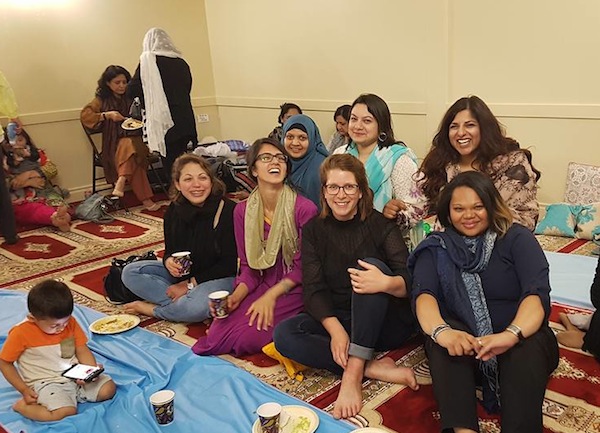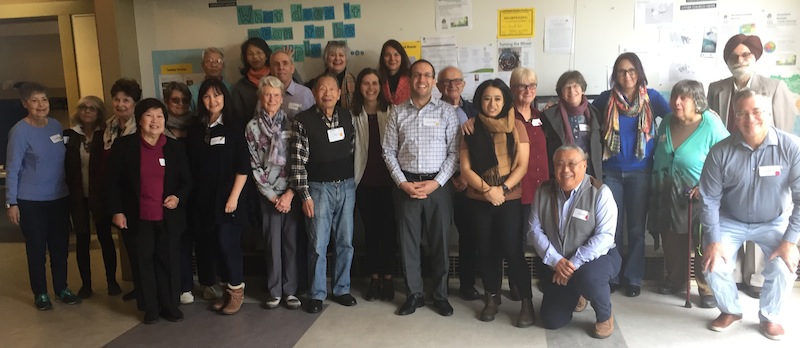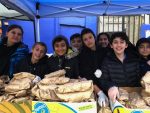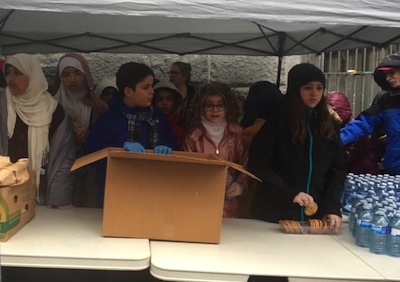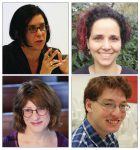For some, this pandemic has been lonely. For families with children, like mine, it’s a lot of togetherness and work. The offer to listen to deep thinkers from three religious traditions by myself for an hour was a rare chance. I’m busy – homeschooling, working, cooking and constantly being “in community” with my twin 8-year-olds. We’re missing our relatives, school and social gatherings, but I’m working constantly. During this pandemic, I’m almost never physically alone.
For an introvert like me, this has been hard. So, I jumped at the chance to cover a webinar with religious insights on the pandemic.
While we’re physically isolated, we’re also more connected by technology than ever before. This is how moderator Dr. Reinhard Krauss began a Zoom webinar, hosted by the American Jewish University, called “Muslims, Jews and Christians: Coming Together in Extraordinary Times.”
The three panelists were all distinguished educators who do interfaith dialogue. Each also offered their personal take on their religious traditions. Rabbi Dr. Elliot Dorff shared Jewish insights, Sister Deborah Lorentz, a member of Sisters of Social Justice, offered a Catholic perspective and Jihad Turk, the president and founder of Bayan Claremont Islamic Graduate School, spoke about Islam.
Much of the webinar highlighted our faith communities’ shared values, including strong support of science and medicine as a way forward. All three panelists, speaking from their faith traditions, pointed out the risky behaviour of extremists who have chosen to ignore medical advice around social distancing. Whether it’s ultra-Orthodox Charedim gathering illegally in Brooklyn or churches choosing to meet on Easter, the consensus was that these choices to disregard social distancing science were crazy. They were, according to Dorff, against Jewish law in terms of saving a life. Jewish teachings regarding social distancing, illness and separation go all the way back to Leviticus.
The need to stay put and social distance is in Islamic teachings, too. Turk quoted a 1,400-year-old hadith (saying of the prophet Mohammed) that said: “Usama b. Zaid said the Prophet said: ‘If you hear of a plague in a land do not enter it; and if it breaks out in the land where you stay, do not leave.’”
All three faith communities talked about the history of community and our traditional strengths in gathering together. Sister Deborah mentioned St. Benedict’s teachings about living in community together. This, she said, is a longstanding support system that we all need.
However, when we can’t gather, we must find other solutions. Catholics must look inward and find “the Jesus Christ within” to gain strength, she said.
Dorff talked about how, when we as Jews are isolated, we miss the most routine things, like going to a movie theatre or grocery store – and then we must innovate. He used a personal anecdote to explain a Jewish historic pattern, mentioning how, for the first time, he and his wife were using technology to chat virtually with all four of their adult children and their families at once. They’d replaced their usual Sunday afternoon movie outing with a virtual family gathering. This had never occurred to them before the pandemic. In isolation, they missed their routine and, therefore, innovated.
The most painful loss for many of us was not being able to gather physically for big holidays – Passover, Easter and, now, Ramadan. Ramadan is an intensely communal holiday, in which families join every evening for iftar to break their fast. Many Muslims also gather at mosques to break their daily fast, and to pray together. Yet, none of that can happen this year. Yes, there are virtual events, but it’s not the same as being together.
So, people must change their routines and pray at home. Turk spoke of “challenging people to work at home. Develop and refine the art of supplication, reaching out from your heart to G-d to what you are most in need of. Strengthen that muscle.”
All three panelists said almost in unison that things should not “return to normal” when it comes to our great societal inequities. Feeding, clothing and housing those in need were recurrent themes. Sister Deborah spoke about how, despite all the struggles that this experience might cause, it also might offer us great gifts. It’s up to us to do the work and find the gifts we’re being taught.
These reflections provided me with food for thought. I was struck by the notion that during this Ramadan, Muslims must work hard to pray at home and “strengthen that muscle when it comes to opening yourself up to G-d.” Often, when I pray in Jewish communities, we’re reciting the prayers but not doing that introspective work.
Sister Deborah’s notion that we must find the gifts in a challenging time was also a perspective that I struggled to find on my own. She encouraged everyone to use this to make change in the future – to envision the way we can take responsibility to right wrongs and inequities we all see in society.
The webinar ended with encouragements to show our love to our families, our friends and the world. We must return to society with, in Dorff’s words, “a greater appreciation for people who do service for us. Farmers, truckers, medical professionals, teachers – we need each other.”
The hour I spent alone listening to this panel discussion was precious. It’s rare indeed for parents to be alone at all during this pandemic! As a bonus, I also heard ideas common to all three faiths: science, work, social responsibility, community connection, and the need to love one another. All these are rooted in Jewish tradition. It’s well worth considering these common and important ideas as we face our lives in a new, post-pandemic landscape.
Joanne Seiff has written regularly for CBC Manitoba and various Jewish publications. She is the author of three books, including From the Outside In: Jewish Post Columns 2015-2016, a collection of essays available for digital download or as a paperback from Amazon. Check her out on Instagram @yrnspinner or at joanneseiff.blogspot.com.

